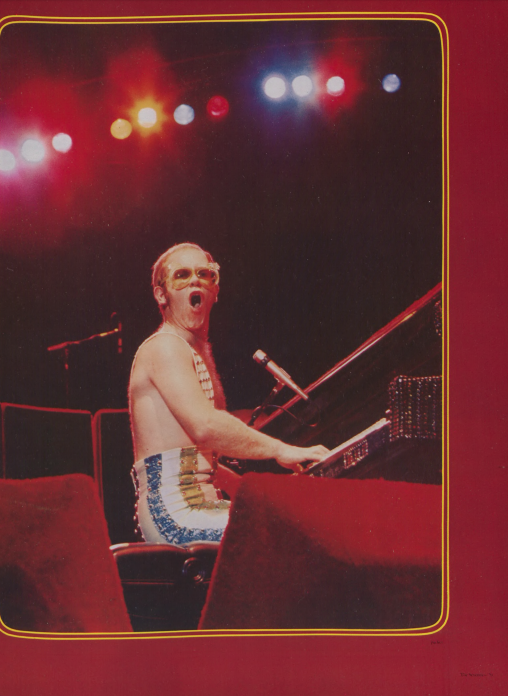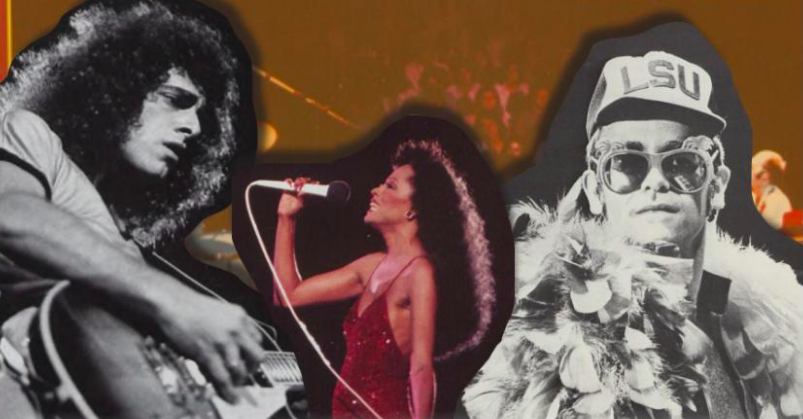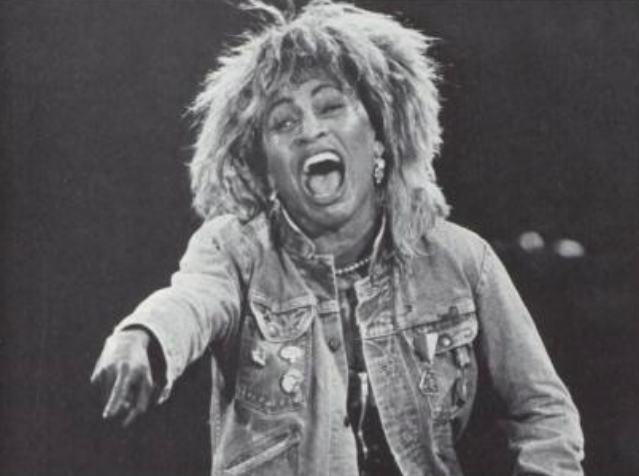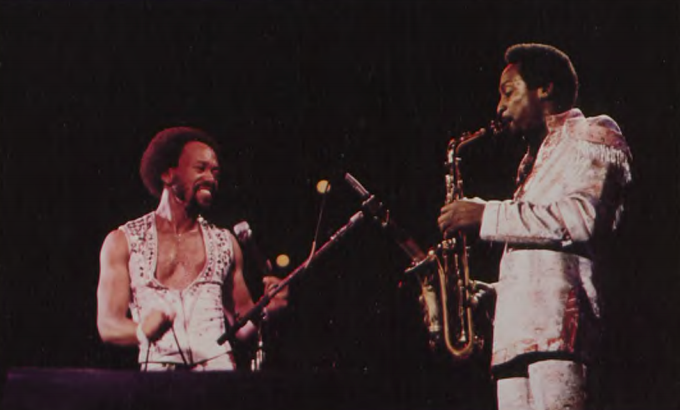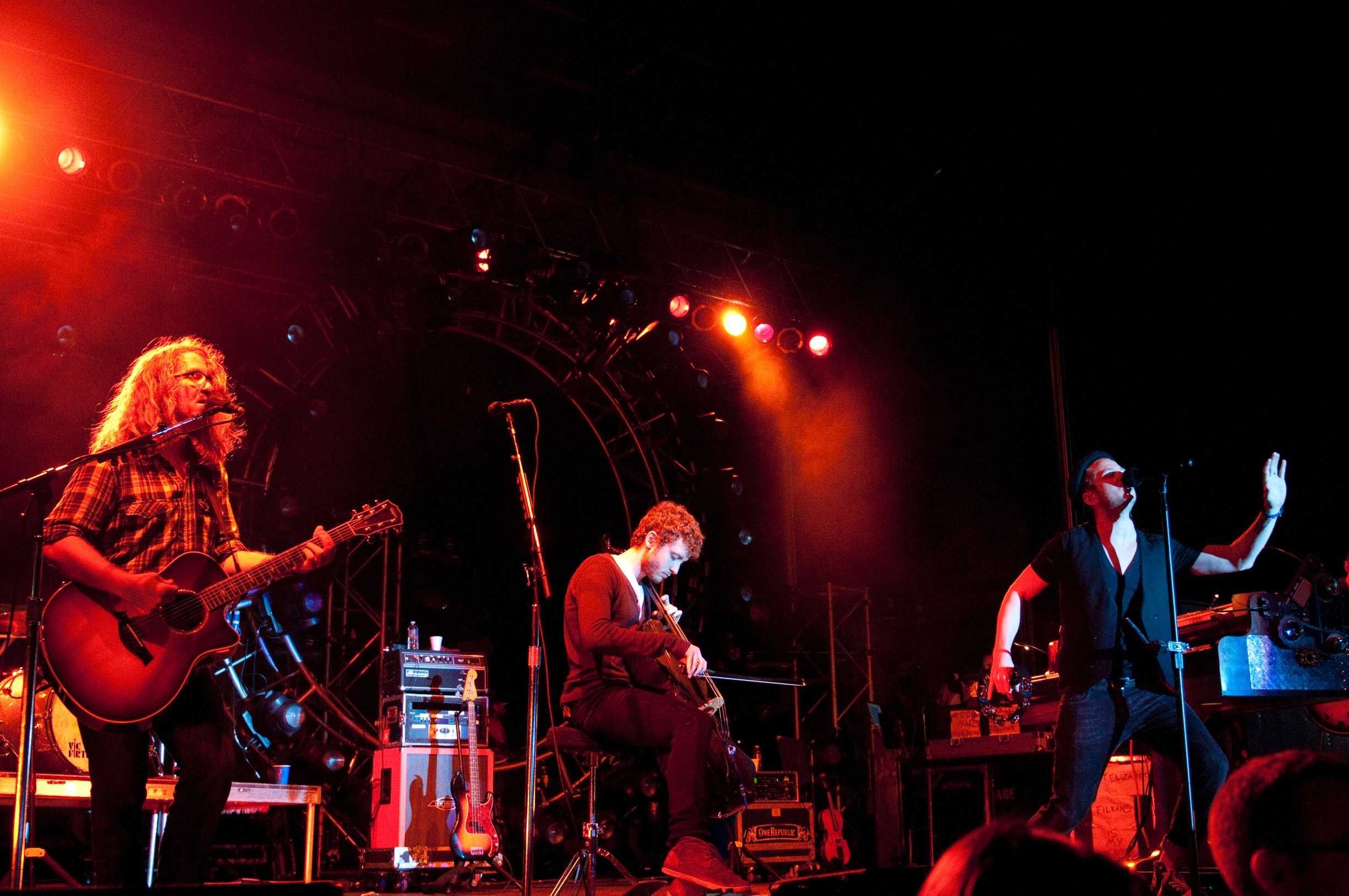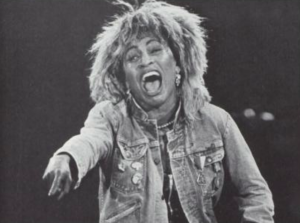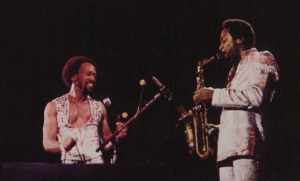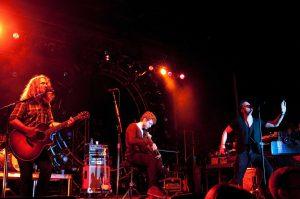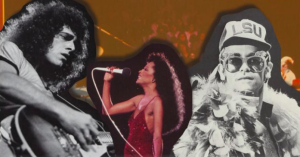In the ‘70s, pop rock legend Elton John was in the prime of his career — he already released his first “Greatest Hits” album, with songs like “Rocket Man” and “Bennie and the Jets,” and he could sell out practically any stadium around the world. In September 1974, he took his talent straight to the best Louisiana venue at the time — the PMAC, then known as the LSU Assembly Center.
John was not the only superstar to perform at the $11.5 million center since its opening in 1971. The venue stacked up performances throughout the ‘70s and ‘80s with shows by Journey, Tina Turner, The Jackson 5, Led Zeppelin and more as Baton Rouge continued to solidify itself as an ultimate concert city.
“LSU is continually able to attract top name entertainment because the Assembly Center is the best place in Louisiana,” said the “Concert Season” section of the 1977 Gumbo Yearbook. “The Superdome is too big. No one wants to play in an oversized arena with 80 percent empty seats … and outdoor stadium concerts are artistically appalling and are only feasible during summer anyway. So the big names continually flock to Baton Rouge.”
In 2019, Baton Rouge is considered more of a pit stop than a heartland of music. Since the late ‘80s, there was a steady drop off of campus concerts at LSU that University officials blamed on the school’s location, a poor allocation of campus resources and a need for renovations, according to a 2003 report from The Reveille. Now, instead of trying to fit in multiple concerts a year, the University focuses most of its attention on Groovin’, LSU’s once-a-year, Student Government-hosted concert.
SG’s involvement in the LSU music scene is not the same today as it was back in the “glory days.” Concerts were originally directed by the Union Pop Entertainment Committee from 1971-83, comprising faculty members who voted on entertainment based on its educational value, according to the aforementioned report. Now, the SG Student Entertainment committee plans the Groovin’ event from conception to completion.
The University may not host as many concerts as it used to, but dedicating time for a specific concert event helps SG decide what artist will appeal to the most students, said mass communication junior Mary Dicharry, director of the SGSE. While LSU is known for hosting rock legends in the past, most students no longer prefer the music their parents listened to.
“In 2011-ish, the preferred genre was rock. Now it’s hip-hop/rap,” Dicharry said. “I think that it just shows SG’s adaptability to put on Groovin’ for the students and to put on a show that most of the students would come see.”
SG surveys students each year to see what the majority of the University wants out of the annual concert. SGSE takes the survey and picks the artist based on student opinion. Student feedback is one of the biggest factors in choosing an artist, Dicharry said.
The planning does not stop after choosing an artist. There are still contracts to be sorted through, event activities to be coordinated and a final project to be executed.
Groovin’ offers free student admission, but none of it would be possible without funding from student fees, SG and a number of sponsors that include Raising Cane’s, LSU Dining, Auxiliary Services, the Student Health Center and University Recreation. At the beginning of each school year, SG forms agreements with sponsors to create a budget for the show.
The student Groovin’ stipend is automatically included in student fee bills, while sponsors can choose from packages outlined by SG, according to Michelle Lowery, associate director for the Office of the Dean of Students. The packages — ranging from $1,000-$10,000 — give each sponsor the opportunity to receive advertising and event benefits for the show.
Some of the donations for 2019’s concert, which featured Baton Rouge native rapper Kevin Gates on March 14, included $5,000 from the Student Health Center, $10,000 from the UREC and $2,500 from Raising Cane’s.
Though Groovin’ takes more than six months to plan, it is highly anticipated by students each year. The concert is an opportunity for students to forget their homework and classes to focus on another important part of LSU’s history — music.
“Groovin’ has brought in an audience of thousands every year and I think that students look forward to it every single year,” Dicharry said. “It’s looked forward to enough that [SG planning should match] the excitement that everyone has.”
From Led Zeppelin to Kevin Gates: A history of musical performances at LSU
By Lynne Bunch
March 13, 2019
Pop rock legend Elton John performed at the LSU Assembly Center in September 1974. John returned nearly 20 later in October 1992 after the venue was renamed to the Pete Maravich Assembly Center.


